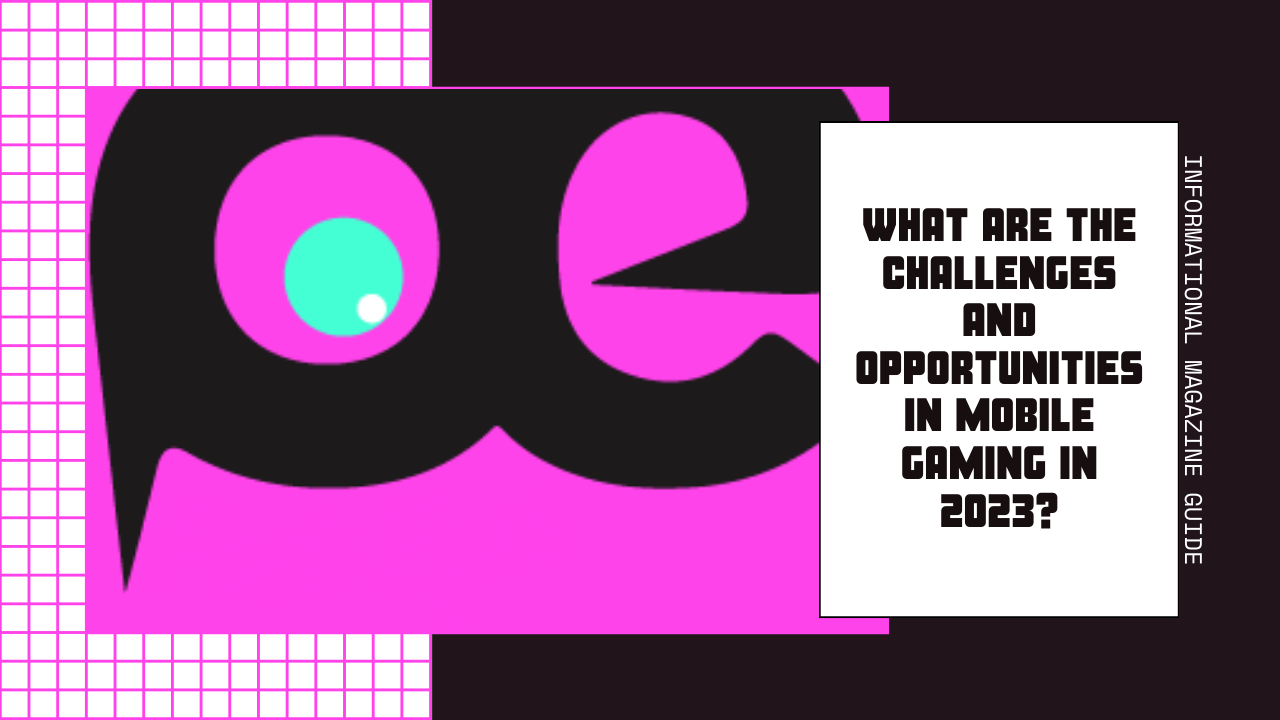The landscape of mobile gaming is dynamic and continually evolving, presenting both challenges and opportunities for developers, players, and the industry as a whole in 2023. This comprehensive exploration delves into the key factors influencing the mobile gaming sector, addressing challenges and identifying potential avenues for growth and innovation.
Challenges in Mobile Gaming:
1. Monetization and Microtransactions:
Challenge:
Monetizing mobile games through microtransactions, in-app purchases, and ads is a double-edged sword. While these revenue streams are essential, striking the right balance without alienating players or creating a pay-to-win environment is challenging.
Opportunity:
Developers can explore alternative monetization models, such as premium games or subscription services, to provide players with diverse options while minimizing the impact of aggressive microtransactions.
2. Discoverability and App Store Saturation:
Challenge:
With an overwhelming number of games available on app stores, achieving discoverability is a significant challenge for new and even established titles. Standing out in a crowded market requires strategic marketing and user acquisition efforts.
Opportunity:
Innovative marketing approaches, influencer collaborations, and strategic partnerships can enhance a game’s visibility. Additionally, focusing on quality, unique gameplay mechanics, and positive user reviews can contribute to organic discoverability.
3. Diversity and Inclusivity:
Challenge:
The mobile gaming industry has faced criticism for a lack of diversity and inclusivity in both game development teams and the representation within games. This has led to calls for more inclusive narratives, characters, and diverse talent in the industry.
Opportunity:
Creating games that reflect diverse experiences and perspectives not only addresses societal concerns but also opens up new markets. Supporting initiatives that promote diversity in game development can foster a more inclusive industry.
4. Technical Limitations:
Challenge:
While mobile devices are becoming increasingly powerful, there are still technical limitations compared to dedicated gaming consoles or PCs. This can constrain the complexity and scale of mobile games.
Opportunity:
Developers can leverage emerging technologies, such as cloud gaming services and advancements in mobile hardware, to overcome technical limitations and deliver more immersive gaming experiences on mobile devices.
5. Regulatory Challenges:
Challenge:
Regulatory changes and scrutiny regarding loot boxes, gambling mechanics, and age-appropriate content can impact the design and monetization strategies of mobile games. Adhering to evolving regulations poses a challenge for developers.
Opportunity:
Proactively adopting transparent and ethical design practices can mitigate regulatory risks. Embracing responsible gaming principles and communicating them to players can build trust and goodwill.
Opportunities in Mobile Gaming:
1. Continued Growth and Market Expansion:
Opportunity:
The global mobile gaming market is expected to continue its growth trajectory. Developers can capitalize on this trend by entering emerging markets, developing games for a broader audience, and tailoring experiences to different cultural preferences.
2. Augmented Reality (AR) and Virtual Reality (VR):
Opportunity:
The integration of AR and VR technologies in mobile gaming offers exciting opportunities for immersive experiences. Games that leverage these technologies can provide players with unique and engaging interactions, enhancing the overall gaming landscape.
3. Cloud Gaming Services:
Opportunity:
The rise of cloud gaming services allows players to access high-quality games without the need for powerful hardware. Developers can explore partnerships with cloud gaming platforms to expand their reach and deliver console-like experiences on mobile devices.
4. Cross-Platform Gaming:
Opportunity:
Enabling cross-platform gameplay fosters a seamless experience for players across different devices. Games that support cross-platform functionality can attract a broader player base and enhance player engagement.
5. Esports and Competitive Gaming:
Opportunity:
The esports scene continues to grow, presenting opportunities for mobile games to establish themselves as competitive titles. Developing games with a focus on competitive play, tournaments, and esports ecosystems can contribute to sustained success.
6. Social and Multiplayer Experiences:
Opportunity:
Integrating social features and multiplayer elements into mobile games enhances player engagement. Games that facilitate social connections and shared experiences have the potential to create vibrant and active player communities.
7. Innovations in Gameplay Mechanics:
Opportunity:
Innovative gameplay mechanics, such as augmented reality, gesture controls, and haptic feedback, can set games apart. Developers embracing novel ways of interaction can create memorable and immersive gaming experiences.
Conclusion:
The mobile gaming industry in 2023 is marked by a blend of challenges and opportunities. Navigating the complex landscape requires a combination of strategic thinking, technological innovation, and a commitment to user satisfaction. Developers and stakeholders who successfully address challenges and capitalize on emerging opportunities stand to contribute to the continued growth and evolution of the mobile gaming ecosystem. As the industry embraces diversity, ethical design practices, and cutting-edge technologies, mobile gaming has the potential to reach new heights, providing players with engaging, inclusive, and immersive experiences.





